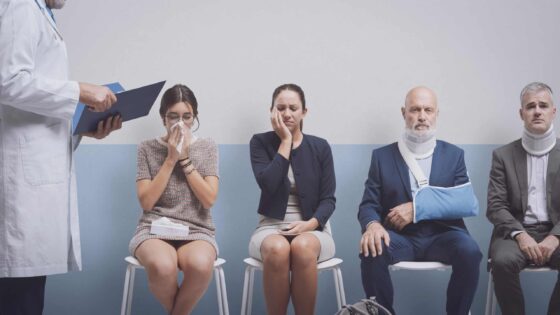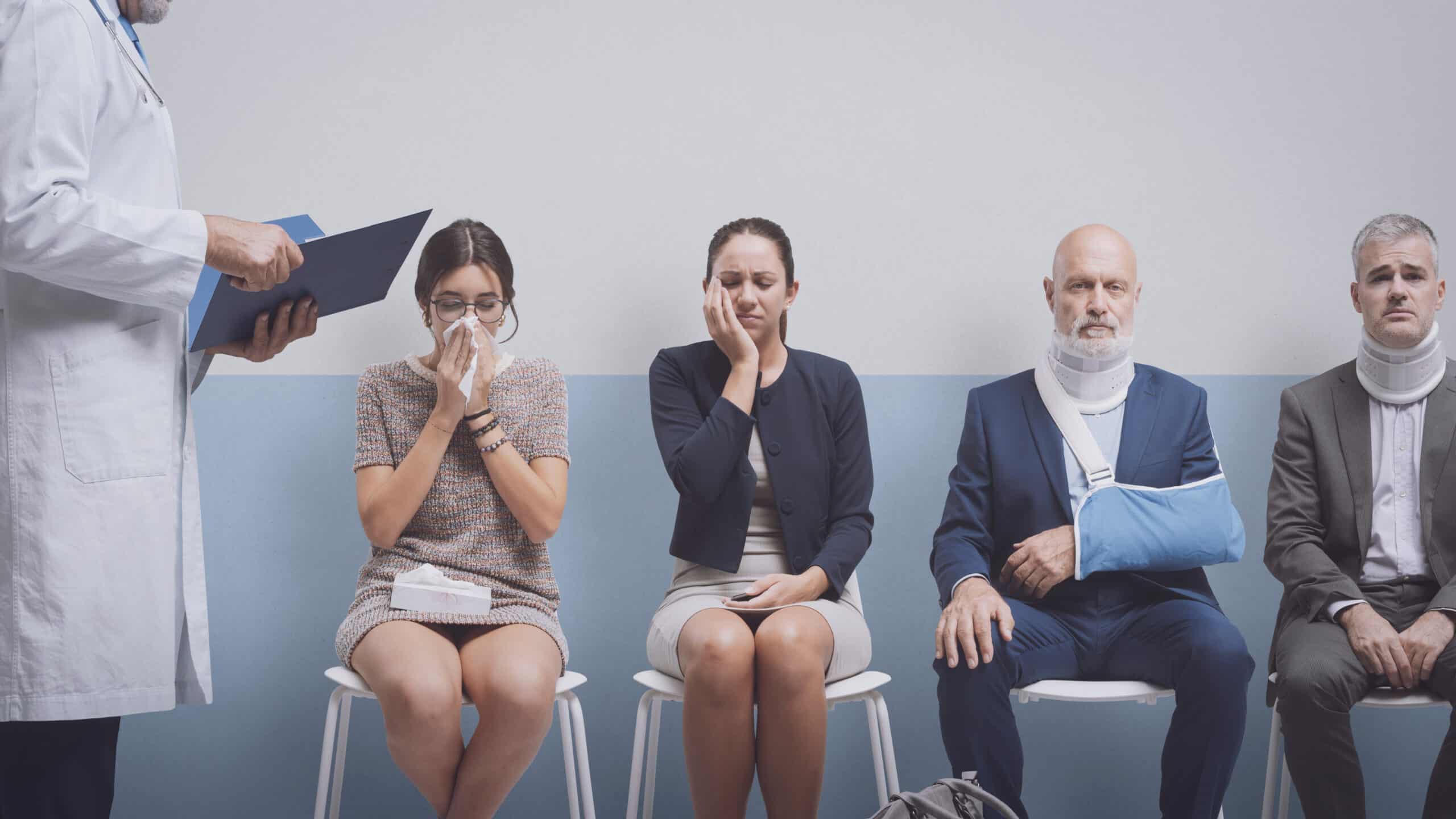
Top 10 Reasons People Visit Urgent Care

Professional doctor meeting patients at the urgent care waiting room, they have different diseases and injuries
Urgent care centers have become an essential resource for people seeking quick and affordable medical treatment. These facilities bridge the gap between primary care providers and emergency rooms, offering convenient services for various health issues. In this blog post, we’ll highlight the top 10 reasons people visit urgent care centers, emphasizing the versatility and convenience of these services.
1. Respiratory Infections
Respiratory infections, including colds, flu, bronchitis, and sinus infections, are some of the most common reasons people visit urgent care centers. These facilities can quickly diagnose and treat these conditions, often with a simple examination and sometimes a prescription.
For more information on respiratory infections, visit CDC’s page on Respiratory Syncytial Virus (RSV)1.
2. Minor Injuries
Urgent care centers are well-equipped to handle minor injuries such as sprains, strains, cuts, and minor fractures. They often offer on-site X-ray services and can provide stitches, splints, and other necessary treatments.
To learn more about managing minor injuries, check out Mayo Clinic’s First Aid Guide2.
3. Skin Conditions
Skin issues like rashes, insect bites, allergic reactions, and minor burns are frequently treated at urgent care centers. These facilities can provide prompt diagnosis and appropriate treatments, including topical medications and recommendations for follow-up care.
For detailed information on common skin conditions, visit American Academy of Dermatology3.
4. Urinary Tract Infections (UTIs)
Urinary tract infections are another common reason for urgent care visits, especially among women. Urgent care centers can perform urine tests and prescribe antibiotics to treat the infection efficiently.
For more about UTIs, refer to Cleveland Clinic’s UTI Overview4.
5. Ear Infections
Ear infections, particularly common in children, can cause significant discomfort. Urgent care centers can diagnose ear infections through an examination and provide appropriate treatments, including antibiotics if needed.
For more on ear infections, visit Johns Hopkins Medicine5.
6. Gastrointestinal Issues
Gastrointestinal problems such as stomach pain, nausea, vomiting, and diarrhea are frequently addressed at urgent care centers. These facilities can evaluate symptoms, conduct necessary tests, and recommend treatments or further medical care.
Learn more about gastrointestinal issues at WebMD’s Digestive Disorders Guide6.
7. Allergies and Asthma
Urgent care centers are equipped to handle acute allergic reactions and asthma flare-ups. They can provide nebulizer treatments, prescribe medications, and offer guidance on managing these conditions.
For more information on allergies and asthma, check out Asthma and Allergy Foundation of America7.
8. Fever
When a fever strikes, especially in children, urgent care centers can offer quick assessments to determine the underlying cause. They can also provide recommendations for managing fever and treating any associated conditions.
For tips on handling fevers, visit KidsHealth Fever Guide8.
9. Vaccinations and Preventive Care
Many urgent care centers provide vaccinations, routine physicals, and preventive care services. This convenience makes it easy for individuals to stay up-to-date on necessary immunizations and health screenings.
For comprehensive vaccination information, refer to CDC’s Vaccination Schedule9.
10. Work-Related Injuries
Urgent care centers are often the go-to for treating non-life-threatening work-related injuries. They can provide initial treatment, recommend further care if needed, and document the injury for workplace records.
For more on managing workplace injuries, visit OSHA’s Guide to Workplace Safety10.
Conclusion
The versatility and convenience of urgent care centers make them an invaluable resource for addressing a wide range of health issues. From minor injuries and infections to vaccinations and preventive care, urgent care centers provide accessible and efficient medical services. Next time you face a non-emergency health concern, consider visiting your local urgent care center for prompt and effective care.
To learn more about Family First Urgent Care visit www.familyfirsturgentcareconroe.com or call
Footnotes
- CDC’s page on Respiratory Syncytial Virus (RSV) ↩
- Mayo Clinic’s First Aid Guide ↩
- American Academy of Dermatology ↩
- Cleveland Clinic’s UTI Overview ↩
- Johns Hopkins Medicine ↩
- WebMD’s Digestive Disorders Guide ↩
- Asthma and Allergy Foundation of America ↩
- KidsHealth Fever Guide ↩
- CDC’s Vaccination Schedule ↩
- OSHA’s Guide to Workplace Safety ↩
- What Is the Story of COVID - January 17, 2026
- Cultural Competency in Urgent Care: Providing Inclusive Patient Care - April 11, 2025
- Key Facts About Hormone Replacement Therapy and Women’s Wellness - March 24, 2025



